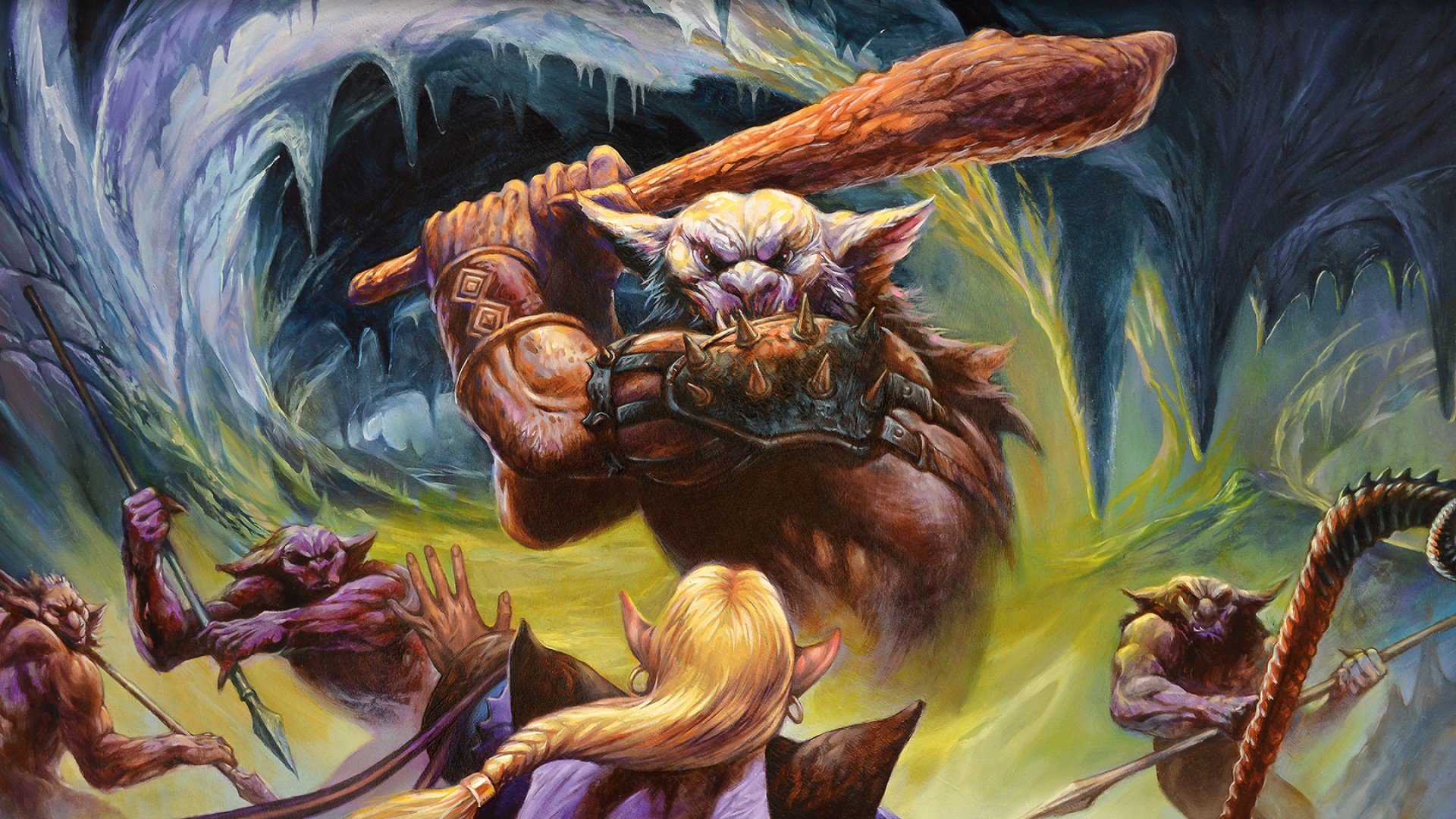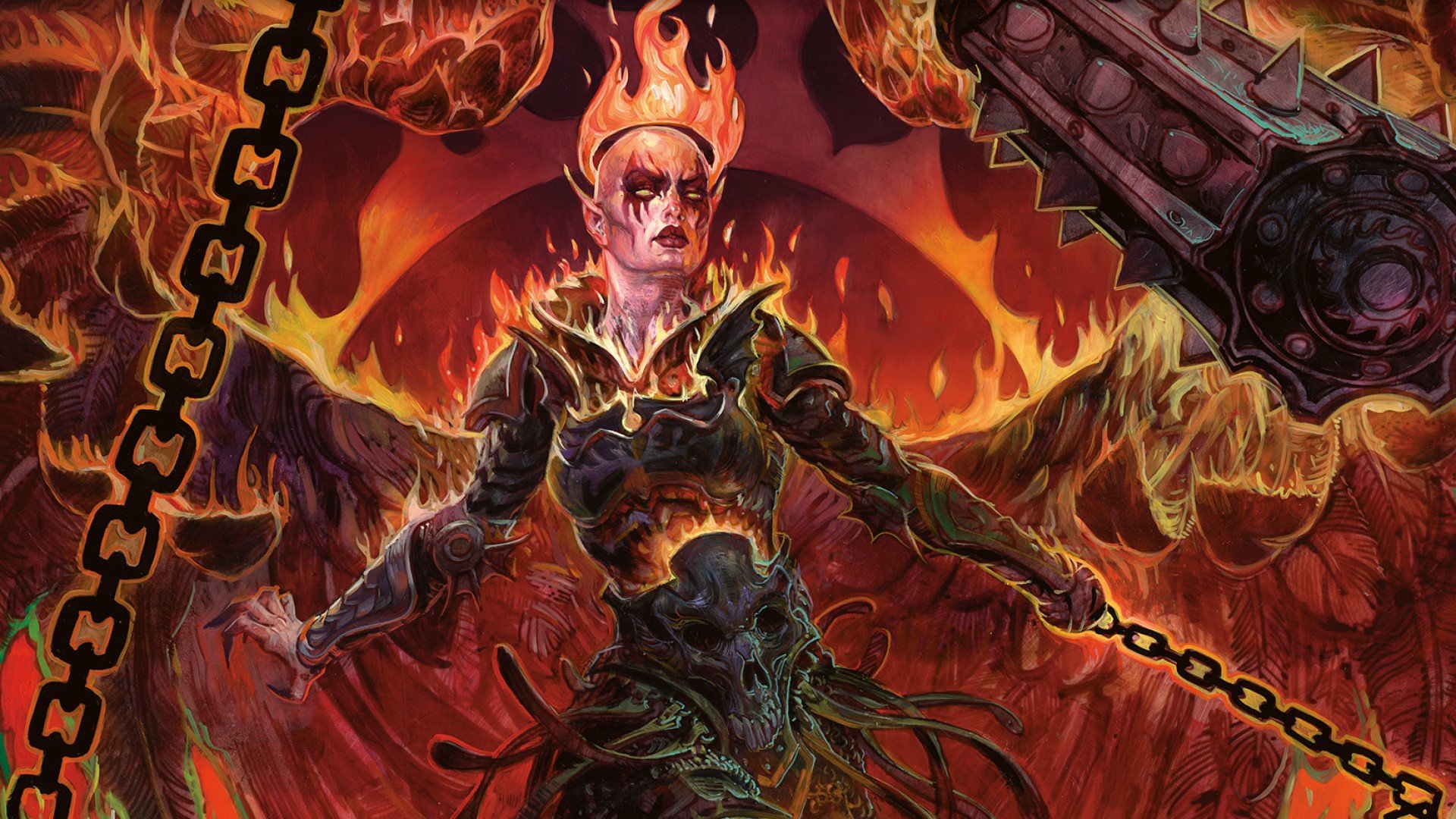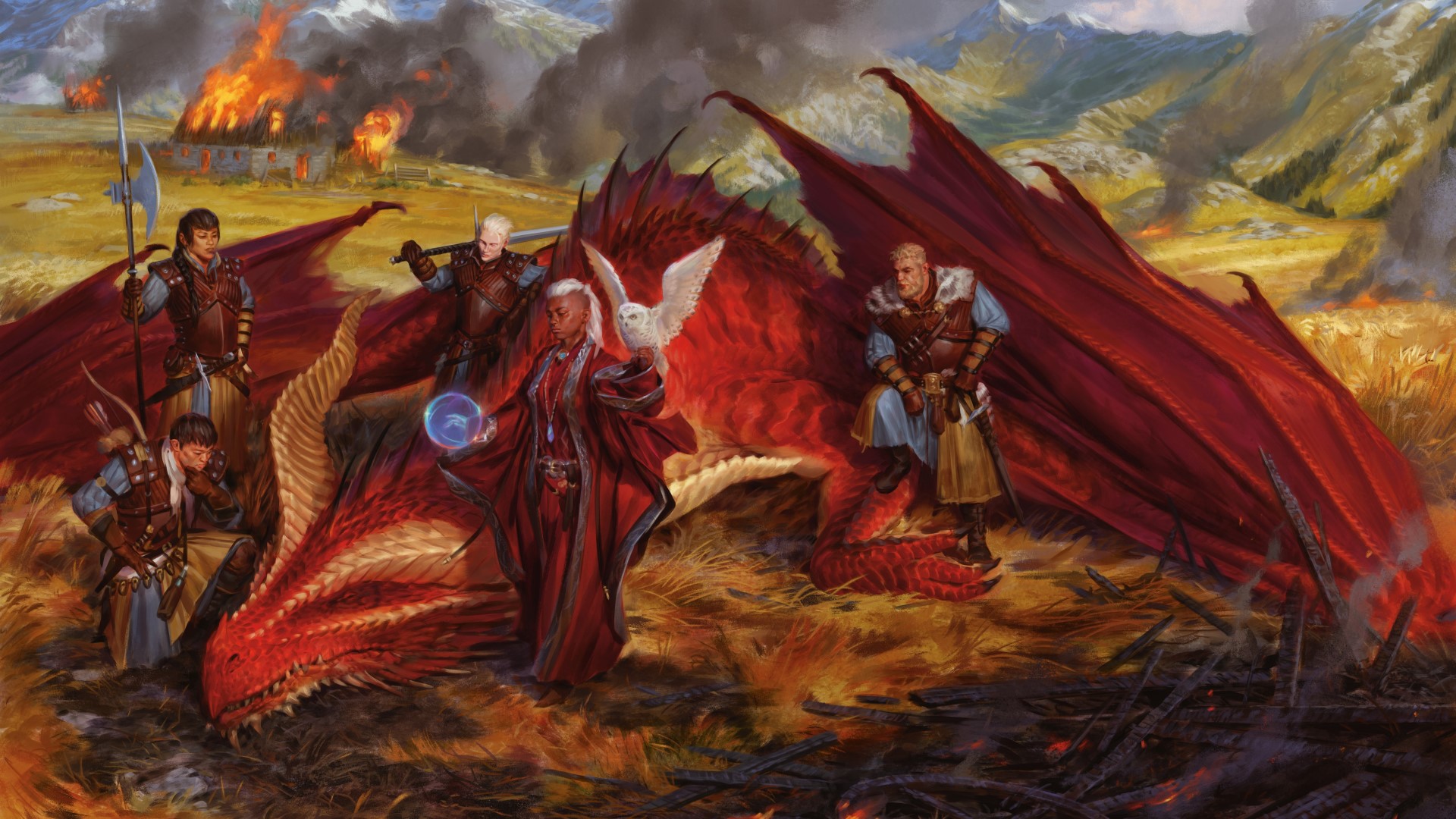There are 16 core DnD languages in fifth edition. While every Dungeons and Dragons character can speak to each other in Common, they may also know other D&D languages thanks to their background. This guide explains all languages in DnD (including the rarest ones), and it can help you decide which are worth your character learning.
Your choice of DnD classes and DnD races will influence which languages your character can speak, but don’t feel like you have to pick the most obvious options. If you’re a plane-hopping Ranger, it makes perfect sense to know languages from unusual places. Similarly, a Gnome that grew up among Dwarfs may speak better Dwarvish than they do Gnomish.
Here’s everything you need to know about DnD languages:

Standard DnD languages
The most common DnD languages are Common, Dwarvish, Elvish, Giant, Gnomish, Goblin, Halfling, and Orc. These are widely spoken across D&D’s core settings, so they’re useful to learn, whether you’re infiltrating an urban community or wandering through uncharted forests.
Here’s more detail about the standard DnD languages:
Common
| Main speakers | Humans (and other species) |
| Alphabet | Common |
Common is a universal DnD language spoken by most races, and unless you specify otherwise, it’s usually the one you’ll be assumed to be using. Being able to talk to everyone in Common is super useful, but the other standard languages can still be handy, provided you’re creative.
Dwarvish
| Main speakers | Dwarves |
| Alphabet | Dwarvish |
While it’s mainly spoken by DnD Dwarf characters, several other languages use the runic alphabet that was first used for Dwarvish. As well as being widely spoken, you’ll see a lot of DnD weapons inscribed with Dwarvish runes.
Elvish
| Main speakers | Elves |
| Alphabet | Elvish |
Also sometimes called Elven, Elvish is commonly spoken by DnD Elf characters. Long ago in Elvish history, some Elves had ties to the Feywild, so the language spoken on that plane shares the Elvish alphabet.

Giant
| Main speakers | Ogres, Giants |
| Alphabet | Dwarvish |
Giant (or Giantish) is one of the oldest living languages in the core DnD setting of Faerûn. Being able to speak Giant might help you avoid fighting one on your adventures.
Gnomish
| Main speakers | Gnomes |
| Alphabet | Dwarvish |
Gnomish shares an alphabet with Dwarvish, but the languages are very different. Creatures from a variety of species use Gnomish in academic writing thanks to its clear and specific vocabulary.
Goblin
| Main speakers | Goblinoids |
| Alphabet | Dwarvish |
DnD Goblins, Bugbears, and Hobgoblins all share the Goblin language. To the untrained ear, many sounds in the language resemble grunting.
Halfling
| Main speakers | Halflings |
| Alphabet | Common |
A DnD Halfling is very open to learning other languages, but their species does have a language of its own. Perhaps this affability is why the language shares the Common alphabet.
Orc
| Main speakers | Orcs |
| Alphabet | Dwarvish |
If you’re playing an Orc or DnD Half-Orc, your native tongue is likely to be the Orc language. It’s an old language that evolved from even older languages spoken by Orcs, but it shares an alphabet with Dwarvish.

Exotic DnD languages
The six exotic DnD languages are Abyssal, Celestial, Draconic, Infernal, Deep Speech, Primordial, Sylvan, and Undercommon. Exotic DnD languages are spoken in places that are less populated by average adventurers, and they’re likely to be as popular as Common. If you’re exploring the Feywild or the Nine Hells, chances are you’ll encounter a language that’s unique to that area – and knowing the lingo will make you a very useful party member.
That being said, the Players’ Handbook suggests you should ask your DM for permission before you take an exotic DnD language. It’s hard to see why you’d be banned from picking one, but it probably is worth having a quick discussion with your DM anyhow, for one simple reason.
Whereas an imaginative player will find opportunities to use the standard D&D languages in pretty much any game, the exotic languages are a bit more all-or-nothing. Many of them are mainly spoken in particular far flung regions, or specific DnD planes.
Here’s more info about these languages:
Abyssal
| Main speakers | Demons |
| Alphabet | Infernal |
Abyssal is spoken by all demons, but its dialects sound vastly different depending on the rank of the demon speaking.
Celestial
| Main speakers | Celestials |
| Alphabet | Celestial |
As the name implies, Celestials speak Celestial. It’s also common for the odd DnD Cleric to pick it up, given its angelic origins.

Draconic
| Main speakers | Dragons, Dragonborn |
| Alphabet | Draconic |
Yes, it’s true – if you’re playing a DnD Dragonborn, chances are you can talk to an actual dragon. Dragonborn also share ancestry with DnD Kobolds, so they can join the conversation too.
Infernal
| Main speakers | Devils |
| Alphabet | Infernal |
Devils in the Nine Hells commonly speak and write in Infernal. Clerics of certain DnD alignments may learn this language. Plus, a DnD Warlock in a pact with a devil might find it useful to know.
Deep Speech
| Main speakers | Aberrations |
| Alphabet | None |
Aberrations, such as Mind Flayers and Beholders, speak the Deep Speech of the Far Realm. There is no written version of this language, though some species have created their own version as accurately as they can.
Primordial
| Main speakers | Elementals |
| Alphabet | Dwarvish |
All elementals speak primordial, but there are four core dialects, one for each elemental plane. These are Auran, Aquan, Ignan, and Terran. An elemental who speaks Aquan can still communicate with one that speaks Ignan, but they remain distinct.
Sylvan
| Main speakers | Fey creatures |
| Alphabet | Elvish |
Fairies, Eladrin, and other creatures that originate from the Feywild tend to speak Sylvan. It shares an alphabet with Elvish.
Undercommon
| Main speakers | Underdark residents |
| Alphabet | Elvish |
Creatures from the Underdark, such as Drow and Duargar, typically speak Undercommon. It’s a common trade language, so many creatures beyond the Underdark make the effort to learn Undercommon.

Other DnD languages
There are a huge number of obscure language in the various DnD books and settings.Some of these are used by rarer races – Aarakocra and Minotaurs have their own languages, for example. Many monsters have their own individual languages, though these are difficult to learn without a special ability (such as the DnD Ranger‘s Favored Enemy). Other DnD languages are found on entirely different planes and planets from Faerûn.
There’s a reason these extra-rare languages can only be found in additional sourcebooks. Generally, you wouldn’t choose these languages for your character unless you’re from the planet or land they originate in. Maybe you’re planning to hop planes or visit a new planet in your Spelljammer, but unless you know the language will be useful, we’d recommend something more general.
There are so many possible languages that we aren’t able to list all of them here. However, we have listed the most common ones you might want to speak if your character belongs to a certain species, culture, or campaign. We’ve also pointed out which sourcebooks they come from.
Here are some of the other languages you might encounter in 5e:
Theros languages
Found in: Mythic Odysseys of Theros
| Language | Main speakers | Alphabet |
| Leonin | Leonin | Common |
Ravnica languages
Found in: Guildmaster’s Guide to Ravnica
| Language | Main speakers | Alphabet |
| Kraul | Kraul | Kraul |
| Loxodon | Loxodon | Elvish |
| Merfolk | Merfolk | Merfolk |
| Sphinx | Sphinxes | None |
| Vedalken | Vedalken | Vedalken |

Krynn languages
Found in: Dragonlance: Shadow of the Dragon Queen
| Language | Main speakers | Alphabet |
| Abanasinia | Abanasinians | Common |
| Ergot | Ergoth People | Common |
| Kharolian | People from the Planes of Dust and Tarsis | Common |
| Kenderspeak | Kender | Common |
| Khur | Khur | Istarian |
| Nordmaarian | Nordmaar People | Istarian |
| Solamnic | Solamnian People | Common |
Eberron languages
Found in: Wayfinder’s Guide to Eberron
| Language | Main speakers | Alphabet |
| Riedran | Lower-class citizens of Sarlona | Common |
| Quori | Quori, Inspired, Kalashtar | Quori |
Wildspace languages
Found in: Spelljammer: Adventures in Space
| Language | Main speakers | Alphabet |
| Thri-kreen | Thri-kreen | None |
Found in: Mordenkainen’s Tome of Foes
| Language | Main speakers | Alphabet |
| Gith | Githyanki, Githzerai | Tir’su |
That’s your complete guide to DnD languages all wrapped up. Need some more rules refreshers? We can walk you through the entire DnD character creator process. We can also help you keep up with the latest Dungeons and Dragons products – just check out the DnD release schedule.
